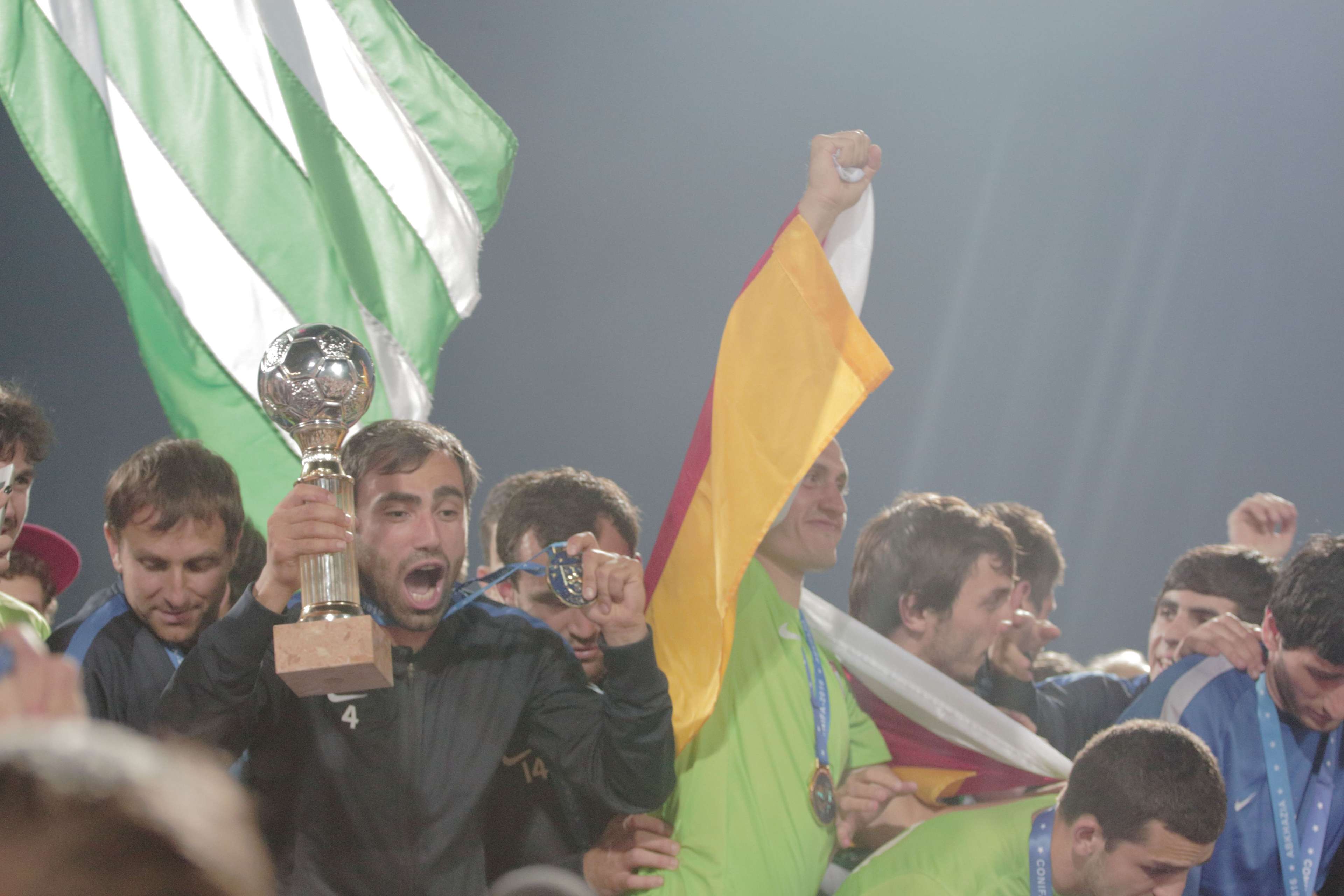Former referee Per-Anders Blind now enjoys the quiet life, following in the footsteps of his father as he spends much of his time tending to his herd of reindeer in the Sápmi region of Northern Scandinavia.
At least, that’s what he’s doing when not serving as President of a global football association – one that’s fighting endlessly to help the game’s most marginalised realise dreams they hardly even dared to imagine.
The Confederation of Independent Football Associations (CONIFA) was Blind’s vision, founded from the embers of the N.F.-Board (New Football Federations-Board) that previously governed non-FIFA international football.
And it was founded to provide a platform for those who went unseen. A stage for the stateless.
“When that organisation collapsed in 2013 I was asked to help create something new, something better,” says Blind.
“I spent several months writing a new constitution, based on democracy and transparency, which was run and governed by the members rather than the board.”
 Getty
GettyFrom having a grand total of zero members in 2013, 45 constituent IFAs now fall under the umbrella of Blind’s confederation. CONIFA has grown rapidly, yet has, so far, managed to avoid compromising the basic tenets and spirit of that original constitution.
“We want the board to serve the members, not vice versa,” says Blind. “When it comes to voting, members have the highest number of votes – a normal CONIFA member, an IFA, has 10 votes, but as president I have one vote. So, the president and board are always in a minority.”
CONIFA certainly isn’t your average football association. Blind and his board strive to act only as facilitators.
“We are more open, and give ethnicities and indigenous people from around the globe the opportunity to present themselves to the world for the first time.
“Often, these groups have been bullied or abused by their governments and other regions or peoples, and consequently lack self-esteem. CONIFA allows them to have pride and find strength in their identity.”
 Getty
GettyBlind’s own Sami people, who compete within CONIFA under the banner of FA Sápmi, are one such example.
They have endured persecution and an ongoing battle with the Swedish government over hunting, herding and fishing rights, eventually resulting in some landmark court judgements in their favour during this decade.
Consequently, for Blind, CONIFA’s message is one close to home. He, like many of the confederation’s higher-ups from similarly marginalised cultures and regions, has reason to put faith in its power to educate and unite.
“For me, lack of knowledge is very dangerous. It creates fear,” Blind explains. “People on the outside looking at CONIFA often have preconceptions about certain groups or ethnicities – but now we can show them the real thing, that these groups are not scary. In my mind, we have a vision to show everyone that we are one people on this planet, even though we have different traditions.”
 Getty
GettySponsorship has been hard to come by, yet CONIFA remains focused on the still-untapped potential of its identity-based approach: with an estimated 5,500 recognised ethnicities dotted around the globe, they have merely scratched the surface.
There’s plenty of room for growth, but Blind has a typically balanced perspective on the organisation’s direction.
“We will continue to grow, but we are not chasing members as we were before. We need to take care of the ones we currently have. We don't have a headquarters, but we’re trying to build up representative offices around the world. It’s important to have a presence on each continent. Even if you’re global, you need to act local.”
Teams, fixtures and everything you need to know about the CONIFA 2018 World Football Cup